Events

- This event has passed.
Monterey Bay Applied Linguistics Symposium
May 17, 2019 @ 9:00 am - 6:00 pm | Humanities 2, Room 259
Share
Symposium Program
9:00AM- Opening Remarks: Bryan Donaldson, Mark Amengual, Kimberly Adilia Helmer
9:30-10:00 – Thor Sawin (Middlebury Institute of International Studies): From Serial Monolingualism to Polylingualism in the Field: Policy and Perspective Challenges in a Large NGO
10:00-10:30 – John Hedgcock (Middlebury Institute of International Studies): Obstacles and Opportunities in Cultivating Teacher Language Awareness
10:30-11:00 – Jason Martel (Middlebury Institute of International Studies): Enacting an Identity Approach in Language Teacher Education
11:00-11:30 – Netta Avineri (Middlebury Institute of International Studies): Language and Social Justice in Practice: From Classroom Activities to Collaborative Advocacy
11:30-1:30 – Lunch break
1:30-2:00 – Laura Callahan (Santa Clara University): Symbolic Uses of Spanish in U.S. Film and Newspaper
2:00-2:30 – Rebecca Pozzi (California State University Monterey Bay), Chelsea Escalante (University of Wyoming) and Tracy Quan (University of Delaware): The Meta-Pragmatic Awareness of Heritage Speakers Studying Abroad in a Non-Heritage Country
2:30-3:00 – Avizia Long (San Jose State University): Intervocalic Rhotic Pronunciation by Korean Learners of Spanish
3:00-3:30 – Ala Simonchyk (Defense Language Institute): Down the Rabbit Hole: From Separate Categories in Production to Fuzzy Phonolexical Representations in L2
3:30-4:00 – Coffee/Tea break
4:00-4:30 – Magdalena Romera & Gorka Elordieta (University of California, Santa Cruz): The Falling Intonational Contours of Polar Interrogatives in Basque Spanish and Their Correlation With Language Attitudes and Degree of Contact with Basque.
4:30-5:00 – Stephen Fafulas (University of California, Santa Cruz): Cross-linguistic Variation of Simple Present and Present Progressive Forms
5:00-5:30 – Don Miller (University of California, Santa Cruz): Beyond Coverage-Based Evidence of Word List Reliability
5:30-6:00 – Bryan Donaldson (University of California, Santa Cruz): Word Order and Discourse Structure in Early Old French: Clitic Position in Coordinated Declaratives 6:00- Closing Business Meeting and visit to Humble Sea Brewery
Speaker Bios:
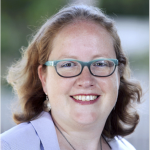 Netta Avineri is TESOL/TFL Associate Professor andIntercultural Competence Committee Chair atthe Middlebury Institute of International Studies at Monterey (MIIS). She is the Middlebury Social Impact Corps Scholars Program Director, co-founded the MIIS Intercultural Digital Storytelling Project, and teaches Service Learning and Teacher Education courses at CSU Monterey Bay. Netta is an applied linguist and linguistic anthropologist who teaches education, intercultural competence, applied linguistics, research methods, and service-learning courses. Her research interests include language and social justice, critical service-learning, interculturality, and heritage and endangered language socialization. Netta’s individual and collaborative research has been published in various media outlets, academic journals, and books. Netta’s book Research Methods for Language Teaching: Inquiry, Process, and Synthesis was published in 2017 and she is one of the five co-editors of the 2019 volume Language and Social Justice in Practice. Netta is also the American Association for Applied Linguistics Public Affairs and Engagement Committee Chair.
Netta Avineri is TESOL/TFL Associate Professor andIntercultural Competence Committee Chair atthe Middlebury Institute of International Studies at Monterey (MIIS). She is the Middlebury Social Impact Corps Scholars Program Director, co-founded the MIIS Intercultural Digital Storytelling Project, and teaches Service Learning and Teacher Education courses at CSU Monterey Bay. Netta is an applied linguist and linguistic anthropologist who teaches education, intercultural competence, applied linguistics, research methods, and service-learning courses. Her research interests include language and social justice, critical service-learning, interculturality, and heritage and endangered language socialization. Netta’s individual and collaborative research has been published in various media outlets, academic journals, and books. Netta’s book Research Methods for Language Teaching: Inquiry, Process, and Synthesis was published in 2017 and she is one of the five co-editors of the 2019 volume Language and Social Justice in Practice. Netta is also the American Association for Applied Linguistics Public Affairs and Engagement Committee Chair.
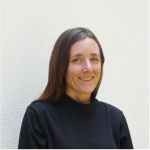 Laura Callahan, formerly Professor of Hispanic Linguistics at The City College and Graduate Center-CUNY, currently teaches courses in Spanish language and linguistics in the Department of Modern Languages and Literatures at Santa Clara University. Her areas of interest are: codeswitching; language, race, and identity; intercultural communication; heritage language maintenance; and linguistic landscapes. Recent publications have appeared in Spanish in Context, Heritage Language Journal, and L2 Spanish Pragmatics: From Research to Teaching.
Laura Callahan, formerly Professor of Hispanic Linguistics at The City College and Graduate Center-CUNY, currently teaches courses in Spanish language and linguistics in the Department of Modern Languages and Literatures at Santa Clara University. Her areas of interest are: codeswitching; language, race, and identity; intercultural communication; heritage language maintenance; and linguistic landscapes. Recent publications have appeared in Spanish in Context, Heritage Language Journal, and L2 Spanish Pragmatics: From Research to Teaching.
 Bryan Donaldson (PhD, Indiana University) is an Associate Professor of French and Applied Linguistics at UC Santa Cruz, where he currently serves as Chair of the Department of Languages and Applied Linguistics. His research focuses on word order and discourse structure in the acquisition of French as a second language (L2) and in Old French and Old Occitan. In second language acquisition, his work primarily examines the highest levels of L2 attainment and has shown that near- native speakers frequently converge on native speaker performance benchmarks, for example in their use of pragmatically marked word orders and variable structures. In Old French and Old Occitan, he has examined the interplay between word order, discourse structure, and diachronic change. He has published in venues such as Studies in Second Language Acquisition, Language Learning, Lingua, Applied Psycholinguistics, Journal of Linguistics, andCanadian Journal of Linguistics.
Bryan Donaldson (PhD, Indiana University) is an Associate Professor of French and Applied Linguistics at UC Santa Cruz, where he currently serves as Chair of the Department of Languages and Applied Linguistics. His research focuses on word order and discourse structure in the acquisition of French as a second language (L2) and in Old French and Old Occitan. In second language acquisition, his work primarily examines the highest levels of L2 attainment and has shown that near- native speakers frequently converge on native speaker performance benchmarks, for example in their use of pragmatically marked word orders and variable structures. In Old French and Old Occitan, he has examined the interplay between word order, discourse structure, and diachronic change. He has published in venues such as Studies in Second Language Acquisition, Language Learning, Lingua, Applied Psycholinguistics, Journal of Linguistics, andCanadian Journal of Linguistics.
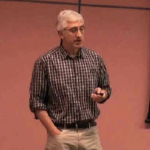 Gorka Elordieta (PhD, University of Southern California, 1997) is a Linguistics professor in the Department of Linguistics and Basque Studies at the University of the Basque Country (Spain). During the 2018-2019 academic year he is a Visiting Research Associate and Visiting Associate Professor in the Department of Linguistics of the University of California, Santa Cruz. His area of specialization is phonology, more concretely prosody, intonation and the interface of phonology with syntax. He has been the principal investigator of a number of research grants in linguistics, and has published articles in journals such as Phonology, Language and Speech, Journal of the International Phonetic Association or The Linguistic Review and in volumes of Oxford University Press, John Benjamins and Mouton de Gruyter.
Gorka Elordieta (PhD, University of Southern California, 1997) is a Linguistics professor in the Department of Linguistics and Basque Studies at the University of the Basque Country (Spain). During the 2018-2019 academic year he is a Visiting Research Associate and Visiting Associate Professor in the Department of Linguistics of the University of California, Santa Cruz. His area of specialization is phonology, more concretely prosody, intonation and the interface of phonology with syntax. He has been the principal investigator of a number of research grants in linguistics, and has published articles in journals such as Phonology, Language and Speech, Journal of the International Phonetic Association or The Linguistic Review and in volumes of Oxford University Press, John Benjamins and Mouton de Gruyter.
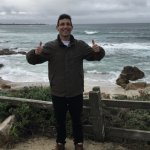 Stephen Fafulas is Assistant Professor at the University of Mississippi and director of the Study of Communities, Involvement & Outreach and Linguistics (SoCIOLing) Laboratory. Currently, he is conducting research on U.S. Spanish and teaching as a Lecturer in the Department of Languages and Applied Linguistics at the University of California, Santa Cruz. His research incorporates work on Spanish, English, and Brazilian Portuguese as well as indigenous languages, such as Yagua, which is featured in his forthcoming volume Amazonian Spanish: Language Contact and Evolution. When not in the classroom or lab, you are likely to find him with his family, at the martial arts academy, or at a local coffee shop.
Stephen Fafulas is Assistant Professor at the University of Mississippi and director of the Study of Communities, Involvement & Outreach and Linguistics (SoCIOLing) Laboratory. Currently, he is conducting research on U.S. Spanish and teaching as a Lecturer in the Department of Languages and Applied Linguistics at the University of California, Santa Cruz. His research incorporates work on Spanish, English, and Brazilian Portuguese as well as indigenous languages, such as Yagua, which is featured in his forthcoming volume Amazonian Spanish: Language Contact and Evolution. When not in the classroom or lab, you are likely to find him with his family, at the martial arts academy, or at a local coffee shop.
 A Professor of Applied Linguistics, John Hedgcock currently teaches in the MATESOL and MATFL Programs at the Middlebury Institute of International Studies at Monterey (MIIS). His recent research has focused on literacy development, genre-oriented literacy instruction, the socialization of foreign- and heritage-language learners in classroom settings, and language teacher preparation. He is the co-author of Teaching Readers of English and Teaching L2 Composition. His other publications have appeared in the Journal of English for Academic Purposes, Applied Language Learning, and a number of edited volumes.
A Professor of Applied Linguistics, John Hedgcock currently teaches in the MATESOL and MATFL Programs at the Middlebury Institute of International Studies at Monterey (MIIS). His recent research has focused on literacy development, genre-oriented literacy instruction, the socialization of foreign- and heritage-language learners in classroom settings, and language teacher preparation. He is the co-author of Teaching Readers of English and Teaching L2 Composition. His other publications have appeared in the Journal of English for Academic Purposes, Applied Language Learning, and a number of edited volumes.
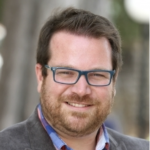 Jason Martel is an Associate Professor of TESOL/TFL at the Middlebury Institute of International Studies at Monterey, where he teaches courses on foreign/second language pedagogy and directs the Summer Intensive Language Program (SILP). He is an active member of the American Association for Applied Linguistics (AAAL) and the American Council for the Teaching of Foreign Languages (ACTFL), for which he currently serves as Chair of the Teacher Development Special Interest Group. Along with Francis Troyan and Laurent Cammarata, he is a co-recipient of the 2017 Stephen A. Freeman Award for Best Published Article, conferred by the Northeast Conference on the Teaching of Foreign Languages (NECTFL). His publications can be found Foreign Language Annals, Journal of Applied Language Learning, and the French Review.
Jason Martel is an Associate Professor of TESOL/TFL at the Middlebury Institute of International Studies at Monterey, where he teaches courses on foreign/second language pedagogy and directs the Summer Intensive Language Program (SILP). He is an active member of the American Association for Applied Linguistics (AAAL) and the American Council for the Teaching of Foreign Languages (ACTFL), for which he currently serves as Chair of the Teacher Development Special Interest Group. Along with Francis Troyan and Laurent Cammarata, he is a co-recipient of the 2017 Stephen A. Freeman Award for Best Published Article, conferred by the Northeast Conference on the Teaching of Foreign Languages (NECTFL). His publications can be found Foreign Language Annals, Journal of Applied Language Learning, and the French Review.
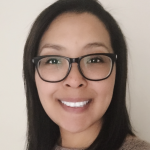 Avizia Long (Ph.D. Indiana University) is an Assistant Professor of Spanish at San José State University. Her research interests include variation in second language Spanish, the acquisition of Spanish by non- English-speaking learners, second language Spanish pronunciation, and pronunciation in task-based language learning and teaching. She is co- author of Sociolinguistics and Second Language Acquisition: Learning to Use Language in Context (Routledge, 2014), and she has published research in Studies in Second Language Acquisition, Studies in Hispanic and Lusophone Linguistics, Hispania, and several edited volumes.
Avizia Long (Ph.D. Indiana University) is an Assistant Professor of Spanish at San José State University. Her research interests include variation in second language Spanish, the acquisition of Spanish by non- English-speaking learners, second language Spanish pronunciation, and pronunciation in task-based language learning and teaching. She is co- author of Sociolinguistics and Second Language Acquisition: Learning to Use Language in Context (Routledge, 2014), and she has published research in Studies in Second Language Acquisition, Studies in Hispanic and Lusophone Linguistics, Hispania, and several edited volumes.
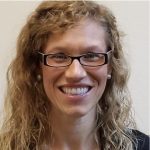 Rebecca Pozzi (Ph.D., University of California, Davis) is an Assistant Professor of Spanish Language and Linguistics at California State University, Monterey Bay, where she coordinates Lower Division Spanish, including the Heritage Language Program, and teaches courses in Spanish language, linguistics, and applied linguistics. Her research focuses on second and heritage language development, sociolinguistics, study abroad, language pedagogy, language policy, and language technology. She has published in journals including Hispania and The CATESOL Journal and in edited volumes from Routledge and Multilingual Matters.
Rebecca Pozzi (Ph.D., University of California, Davis) is an Assistant Professor of Spanish Language and Linguistics at California State University, Monterey Bay, where she coordinates Lower Division Spanish, including the Heritage Language Program, and teaches courses in Spanish language, linguistics, and applied linguistics. Her research focuses on second and heritage language development, sociolinguistics, study abroad, language pedagogy, language policy, and language technology. She has published in journals including Hispania and The CATESOL Journal and in edited volumes from Routledge and Multilingual Matters.
 Ala Simonchykis Assistant Professor of Russian at the Defense Language Institute in Monterey, CA. Her research interests focus on pronunciation instruction, experimental phonetics, and second language speech processing, specifically on how various domains, such as perception, production, lexical encoding and orthography interact with each other in the acquisition of L2 phonologies.
Ala Simonchykis Assistant Professor of Russian at the Defense Language Institute in Monterey, CA. Her research interests focus on pronunciation instruction, experimental phonetics, and second language speech processing, specifically on how various domains, such as perception, production, lexical encoding and orthography interact with each other in the acquisition of L2 phonologies.
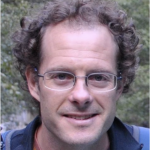 Don Miller is an Assistant Professor in the Department of Languages and Applied Linguistics at the University of California, Santa Cruz, where he teaches courses on second language acquisition, L2 teaching, and research in Applied Linguistics. His research interests focus on corpus- based approaches to examining academic vocabulary in published and learner writing. His work has appeared in the Journal of Second Language Writing, the Journal of English for Academic Purposes, and the International Journal of Corpus Linguistics.
Don Miller is an Assistant Professor in the Department of Languages and Applied Linguistics at the University of California, Santa Cruz, where he teaches courses on second language acquisition, L2 teaching, and research in Applied Linguistics. His research interests focus on corpus- based approaches to examining academic vocabulary in published and learner writing. His work has appeared in the Journal of Second Language Writing, the Journal of English for Academic Purposes, and the International Journal of Corpus Linguistics.
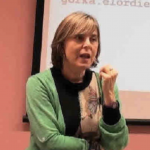 Magdalena Romera (PhD, University of Southern California, 2001) is a professor of Spanish Linguistics in the Department of Humanities and Education Sciences at the Public University of Navarre (Spain) and Visiting Research Associate at the Languages and Applied Linguistics Department at UC Santa Cruz for the current academic year. She has also been the Director of the Catedra de Patrimonio Inmaterial de Navarra for the past three years. Her research interests include Language Variation, Language Contact and Discourse Analysis. She has participated in several research grants in her areas of expertise, and has published articles in prestigious journals such as Linguistics, International Journal of the Sociology of Language and Discourse and Society.
Magdalena Romera (PhD, University of Southern California, 2001) is a professor of Spanish Linguistics in the Department of Humanities and Education Sciences at the Public University of Navarre (Spain) and Visiting Research Associate at the Languages and Applied Linguistics Department at UC Santa Cruz for the current academic year. She has also been the Director of the Catedra de Patrimonio Inmaterial de Navarra for the past three years. Her research interests include Language Variation, Language Contact and Discourse Analysis. She has participated in several research grants in her areas of expertise, and has published articles in prestigious journals such as Linguistics, International Journal of the Sociology of Language and Discourse and Society.
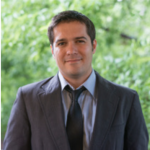 Thor Sawin is an Associate Professor in the Masters of Teaching Foreign Languages/Teaching English to Speakers of Other Languages program at Middlebury Language Schools. His research and teaching interests focus mainly on technology in language instruction, grammar pedagogy, and multilingualism in social impact settings. He also does consultancy on language policy and language acquisition support for several multinational organizations. His recent publications have appeared in Reconsidering Development, Journal of Language, Identity and Education, and the CALICO Journal, and he has authored chapters in several volumes published by Multilingual Matters and Cambridge, as well as several field guides and reference articles.
Thor Sawin is an Associate Professor in the Masters of Teaching Foreign Languages/Teaching English to Speakers of Other Languages program at Middlebury Language Schools. His research and teaching interests focus mainly on technology in language instruction, grammar pedagogy, and multilingualism in social impact settings. He also does consultancy on language policy and language acquisition support for several multinational organizations. His recent publications have appeared in Reconsidering Development, Journal of Language, Identity and Education, and the CALICO Journal, and he has authored chapters in several volumes published by Multilingual Matters and Cambridge, as well as several field guides and reference articles.
Abstracts:
From Serial Monolingualism to Polylingualism in the Field: Policy and Perspective Challenges in a Large NGO
Thor Sawin (Middlebury Institute of International Studies)
Western NGOs, in their trainings and policy documents, often display language ideologies honed by years of their personnel’s formal language education. These tend to naturalize the so-called Herderian triad (one language, one people, one territory) by enforcing clear distinctions between reified language-as-systems supported by the tentpole of official written standards. Such ideologies endure even when NGO workers’ host communities are complexly multi- and translingual. This paper examines what did and did not shift in language ideology of NGO staff working with indigenous and displaced minority populations across the Middle East, and the process of crafting new language policies. The NGO, previously committed to rigidly serial language acquisition, contacted the author for training on translingual practice. The needs of the organization favor a language-as-mobile-resource approach and contact zone orientation (Harrison, 2007; Blommaert, 2010; Canagarajah, 2017). Data from the participant-authored blogposts before and conversations during the five-day training revealed narratives of vision and blindness, and also of freedom through admitting that the language practices of their hosts were less separable and nameable than their training acknowledged. Resistance centered on felt implausibility of learning “more than one language” –a parallelism refuted by neurological and sociolinguistic research. Unless Western ideologies of language are adapted to the language life ways connecting rural-traditional and urban-migrant spaces, organizations serving, multilingual minority populations may ironically risk reinforcing nationalistic views through their policies on language acquisition (Ndhlovu, 2018).
Obstacles and Opportunities in Cultivating Teacher Language Awareness
John Hedgcock (Middlebury Institute of International Studies)
In a connected, digitized world, language teacher education must prepare teacher candidates to function in a dynamic world of work and communication. Drawing on critical incidents from a U.S. teacher preparation program, the presenter will explore three obstacles to building teachers’ language awareness. These challenges include: (1) cultivating understanding of the naturalness of linguistic variation; (2) promoting the uptake of teaching skills; and (3) nurturing the ability to use and transform the language and genres of skilled educators. Reflecting on his work with developing teachers, the presenter will share field-tested strategies and interventions designed to convert these obstacles into opportunities.
Enacting an Identity Approach in Language Teacher Education
Jason Martel (Middlebury Institute of International Studies)
Scholars have called for an identity approach to language teacher education, which involves employing identity as a lens for helping teacher candidates take ownership over their professional development and assert agency in becoming the types of language teachers they aspire to be. Although previous studies have examined specific identity-oriented tools used in language teacher preparation programs, none has yet addressed a course in which a focus on identity is integrated throughout all assigned activities. The present study thus addresses the experiences of language teacher candidates enrolled in an identity-oriented capstone practicum course as part of a TESOL/TFL master’s degree program. Data were mined from course activities (e.g., teaching journals, post-observation conferences), as well as two additional interviews. Findings include ways in which the participants not only processed identity positions they brought to the course, but also explored new positions related to their experiences during the semester.
Language and Social Justice in Practice: From Classroom Activities to Collaborative Advocacy
Netta Avineri (Middlebury Institute of International Studies)
How can applied linguists mobilize their expertise, experience, and networks to engage in social justice efforts? This talk focuses on collaborations at the intersection of language, social justice, and advocacy, highlighting how applied linguists’ participation in struggles over language are connected to broader justice struggles. First, I present my model of “nested interculturality”, a collective of dispositions and practices for ethical engagement in multilingual and intercultural interactions. Language teacher education and critical service-learning course examples will be shared. Next, I discuss various collaborations in the AAAL Public Affairs and Engagement Committee around immigration and international exchange. Last, case studies from the 2019 volume Language and Social Justice in Practice (Avineri, Graham, Johnson, Riner, and Rosa, Eds.) of collaborative advocacy efforts around the “language gap”, sports team mascot names, immigration, and the US Census will be explored. Overall, the presentation provides applied linguists with multiple avenues for impactful social justice work.
Symbolic Uses of Spanish in U.S. Film and Newspaper
Laura Callahan (Santa Clara University)
This presentation will examine the use of Spanish in U.S. English-medium films and newspapers, with data from over the past 20 years. Examples to be seen range from cases in which the objective seems to be a casual demonstration of the speaker’s power, with Spanish used as a tool to accomplish that purpose, to other instances in which the use of Spanish seems to function as a language display signaling the speaker’s claim to a Latinx identity. The corpus provides fodder for a discussion of various issues germane to the teaching of Spanish and Spanish linguistics, such as Mock Spanish, language and power, pragmatics and second language users, as well as codeswitching and other contact phenomena.
The Meta-Pragmatic Awareness of Heritage Speakers Studying Abroad in a Non-Heritage Country
Rebecca Pozzi (California State University Monterey Bay), Chelsea Escalante (University of Wyoming) and Tracy Quan (University of Delaware)
Although the number of heritage speakers (HSs) studying abroad is projected to grow in the coming years (Shively, 2018), little is known about the pragmatic choices and development of HSs in this context. This study investigates the impact of a 3-week instructional treatment related to requests, apologies, and the use of vos among three HSs of Mexican descent during study abroad (SA) in Mendoza, Argentina. A written elicitation task was used as a pre/post measure of students’ meta- pragmatic awareness and their accommodation ofvoseo. Following explicit instruction, HSs increased their meta-pragmatic awareness and their use of vos. Nevertheless, variation was observed due to individual differences and HS identities. Case studies revealed that participants’ pragmatic choices aligned with their identities, their interactions with Argentines, and their future goals. These findings suggest that these HSs benefited from explicit pragmatics instruction, increased their meta- pragmatic awareness, and made pragmatic choices that reflected their identities.
Intervocalic Rhotic Pronunciation by Korean Learners of Spanish
Avizia Long (San Jose State University)
Previous research on the second language (L2) acquisition of Spanish rhotics has focused on the tap- trill distinction in production by native English-speaking learners (e.g., Face, 2006; Major, 1986; Olsen, 2012; Reeder, 1998; Rose, 2010). There is a lack of research on rhotic pronunciation by learners who speak a non-English first language (L1), limiting the generalizability of attested findings. The present study addresses this gap in the literature by investigating the acquisition of Spanish rhotic production by adult learners whose L1 is Korean. Sixty-six adult Korean learners at four instructional levels of Spanish language study (Long, 2016) completed an oral picture book description task (dePaola, 1978) from which words containing intervocalic rhotics were extracted for acoustic analysis. This talk will present the findings of this analysis, specifically the types of productions observed for the alveolar tap /ɾ/ and trill /r/ at each instructional level sampled.
Down the Rabbit Hole: From Separate Categories in Production to Fuzzy Phonolexical Representations in L2
Ala Simonchyk (Defense Language Institute)
Previous research suggests that accurate realization of L2 phonemes is not necessarily accompanied by learners’ accuracy in other domains of phonological acquisition. The current talk will investigate whether learners who produce a challenging contrast in their L2 store words with this contrast separately in the mental lexicon. Forty American learners of Russian were evaluated on their production and lexical encoding of highly familiar Russian words with palatalization. The results suggest that learners’ ability to accurately differentiate words with the plain/palatalized contrast in production developed independently of their phonolexical representations, which appear to merge in the mental lexicon. Moreover, leaners’ performance was strongly affected by the prosodic position of the target consonants. In intervocalic position, learners made significantly fewer production mistakes than word-finally. However, they accepted a substantially greater number of nonwords with the target consonants in intervocalic position than in word-final position on a lexical encoding task.
The Falling Intonational Contours of Polar Interrogatives in Basque Spanish and Their Correlation with Language Attitudes and Degree of Contact with Basque
Magdalena Romera and Gorka Elordieta (Public University of Navarre and University of the Basque Country (UPV/EHU)/University of California, Santa Cruz)
The main goal of this paper is to analyse the prosodic features of Spanish varieties that are in contact with Basque in Northern Spain (Basque Country and Navarre) and to observe to what extent social factors, particularly the speakers’ attitudes towards the other language, can determine the degree of linguistic convergence (Romera and Elordieta 2013; Elordieta and Romera in press). We recorded semi-directed conversations in Spanish of a total of 36 speakers (monolingual speakers of Spanish, L1 Spanish-L2 Basque speakers, and L1 Basque-L2 Spanish speakers), in urban and rural areas in the Basque Country and Navarre. In this talk, we concentrate on information-seeking yes/no questions, which present different intonation contours in Basque and in Spanish. In Basque, yes/no questions end in a low or falling contour (cf. Elordieta and Hualde 2014), whereas in Castilian Spanish they end in a rising contour (Navarro Tomás 1918; Quilis 1981; Face 2008; Estebas-Vilaplana and Prieto 2008, 2010; Hualde and Prieto 2015, among others). Preliminary results from 24 speakers show that all of them present a majority of falling final contours in their Spanish, regardless of their knowledge of Basque. Speakers differed in their frequency of occurrence of falling contours, ranging from 66% to 100%. Interestingly, in urban populations (Bilbao and San Sebastian) a correlation was found between attitudes to Basque among monolingual and L1 Spanish speakers and the degree of prosodic convergence towards Basque found in their speech. In other words, the more positive the attitudes, the higher the degree of prosodic convergence shown (i.e. the higher the percentage of yes/no questions ending in a falling contour). Prosody is a trait that strongly identifies Basque speakers; it stands as a fundamental identifying feature. The results indicate then that the adoption of the characteristic prosody of Basque allows these speakers to be recognized as members of the Basque community. In smaller towns, however, where the degree of contact with Basque is higher, no correlation between language and ethnolinguistic attitudes and degree of convergence was found. In general, a higher percentage of final contours in yes/no questions than in the two cities were observed. We conclude that in towns where the presence of Basque in everyday life is stronger, the higher degree of contact with Basque is the main factor that can account for the higher frequency of Basque intonational features. Although this investigation is still in progress, the results obtained so far in this study of a particular aspect of Spanish intonation in contact with Basque reveal the influence of social factors in the degree of convergence between the two languages.
Cross-Linguistic Variation of Simple Present and Present Progressive Forms
Stephen Fafulas (University of California, Santa Cruz)
Accounts of tense-aspect-mood systems hold that cross-linguistically there is a small set of prototypical functions that have followed similar evolutionary paths. For example, in languages that mark progressive aspect obligatorily with the present progressive, the simple present has been edged into habitual territory. However, there are languages such as Spanish that allow for the use of simple present and present progressive forms to encode “action simultaneous with speech”. Still others, like English, show a clearer distinction between progressive and habitual form-function mapping. What is lacking in these accounts is abundant cross-linguistic empirical evidence to substantiate the claims. To address this, the current study compares the distribution of simple presents and present progressives in an oral corpus of Spanish and English to test whether these languages and forms operate as suggested in the previous literature.
Beyond Coverage-Based Evidence of Word List Reliability
Don Miller (University of California, Santa Cruz)
Over the past two decades, the greatest efforts in designing and validating corpus-based word frequency lists have gone into three areas: corpus design, item selection criteria, and coverage-based demonstrations of list robustness. Corpora are now often much larger and better balanced and, as a result, perhaps more representative than ever before; the application of additional distributional statistics allows for better targeting of items with desired distributions (e.g., Gardner & Davies, 2014); and contemporary lexical frequency lists are proving increasingly efficient, providing ever higher coverage of target texts or achieving such coverage with fewer words (e.g., Brezina & Gablasova, 2015). In this talk, I argue that researchers should go beyond coverage-based, indirect evidence of reliability in order to better understand the representativeness of corpora and the generalizability of word lists based on them.
Word Order and Discourse Structure in Early Old French: Clitic Position in Coordinated Declaratives
Bryan Donaldson (University of California, Santa Cruz)
This talk examines clitic position in coordinated declaratives in early Old French. Prior to about 1200, object and adverbial clitics are variably preverbal or postverbal in this context (Simonenko & Hirschbühler 2012), as in (1) and (2).
(1) É li poples ápluvéit de tutes parz é fud é se teneit od Absalon.
“And people came in large numbers from everywhere and were with and stood with Absalom.” (Li quatre livre des reis, Curtius, 1911: 86)
(2) Or ne fera mes plus; trop a avant alé, E pesot li que tant en aveit trespassé.
“From now on, he will not do more; he went too far, and he regretted having gone that far.” (Becket, v.
1020)
An empirical study reveals that the choice of coordinate structure, and clitic position, is
principled and reflects discourse structure. In particular, cases like (1) occur within a single discourse segment, whereas examples like (2) correspond to separate discourse segments.
